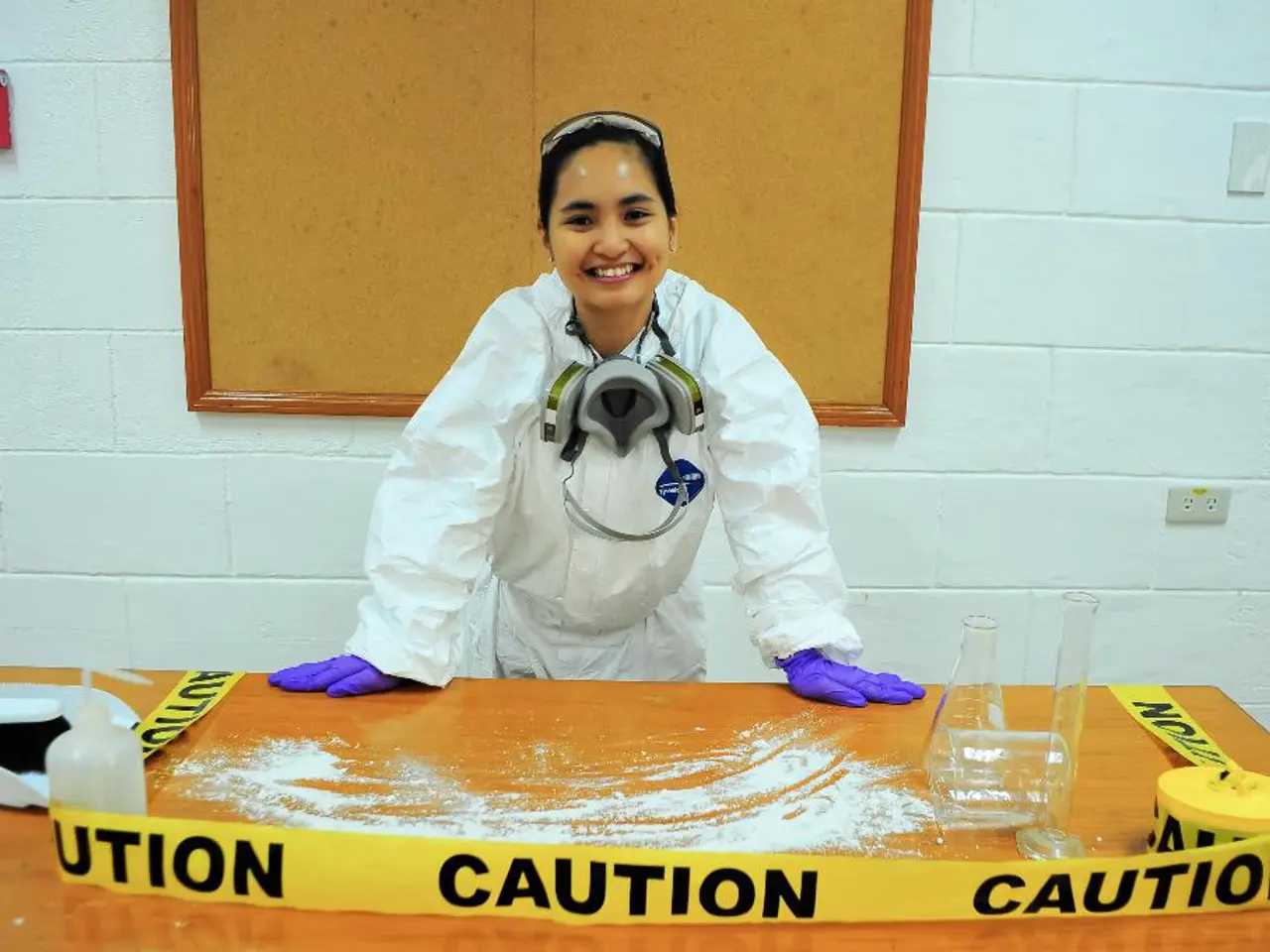Avoid these Protein Powders Suggested by Experts Immediately
In the realm of health and fitness, protein powders are a popular choice for many. However, a recent study by The Clean Label Project has raised concerns about the safety and quality of some protein powders on the market.
One brand that has come under scrutiny is Quest, specifically their Chocolate Milkshake Protein Powder. The Clean Label Project found that this product contains higher levels of heavy metals compared to vanilla flavors, a finding that warrants caution for consumers.
Another brand that has raised eyebrows is Garden of Life, particularly their Raw Organic Meal Replacement Protein Powder in Chocolate. Registered Dietitian Nutritionist (RDN), Violeta Morris, has expressed concerns about the inclusion of erythritol, a sugar alcohol that can cause digestive issues like bloating and gas in some individuals. Moreover, the same product was flagged by The Clean Label Project as containing high levels of heavy metals, such as lead, arsenic, and cadmium.
Plant-based protein powders are not immune to these concerns. The Clean Label Project found that 75% of the plant-based protein powders they tested contained detectable levels of lead. Vega Sport Plant-Based Vanilla Performance Protein, while carrying the respected NSF Certified for Sport, was flagged in The Clean Label Project's testing.
Nutrition On The Go Whey + Creatine is another example where caution is warranted due to lack of third-party certifications or details on quality assurance. Morris highlights this as a broader issue with some protein powders, as many lack third-party testing or verified quality assurance, which is important for ensuring safety and transparency.
Creatine in protein powders can also pose risks. Morris notes that when consumed in excess, it can lead to temporary weight gain, dehydration risk, stomach discomfort, and muscle cramping.
Javyy Original Protein Coffee, with 70 calories, 70 mg of caffeine, and 10 grams of protein per scoop, is not third-party tested, so the accuracy of its labeling and the purity of its ingredients may be questionable.
Optimum Nutrition Serious Mass-Chocolate, with its high calorie and sugar content, can lead to blood sugar spikes and unwanted fat gain, even in individuals without diabetes. Each serving (2 scoops) provides 1,260 calories, 251 grams of carbohydrates, 50 grams of protein, and 29 grams of sugar.
In summary, consumers should exercise caution when choosing protein powders. Erythritol in Garden of Life Chocolate protein powder can cause digestive discomfort, and protein powders, including some brands, may contain heavy metals and contaminants. Third-party testing is recommended for safety. Creatine-containing protein powders can have side effects such as water retention and cramping.
Morris urges caution with any protein powder, especially plant-based options, due to concerns about contamination. It's essential to prioritize quality and transparency when selecting a protein powder to ensure a healthy and safe supplementation to your diet.
[1] Morris, Violeta. "Protein Powder Safety: What You Need to Know." Violeta Morris Nutrition, 15 Jan. 2021, www.violetamorrisnutrition.com/protein-powder-safety.
- In the health-and-wellness industry, the safety and quality of some protein powders have been questioned due to high levels of heavy metals and other contaminants.
- The Chocolate Milkshake Protein Powder from Quest contains higher levels of heavy metals compared to vanilla flavors, as reported by The Clean Label Project.
- Garden of Life's Raw Organic Meal Replacement Protein Powder in Chocolate, despite its organic label, has been flagged for containing high levels of heavy metals and worrisome ingredients like erythritol.
- Many plant-based protein powders, including Vega Sport Plant-Based Vanilla Performance Protein, have been found to contain detectable levels of lead by The Clean Label Project.
- Nutrition transparency is crucial in protein powder selection; products lacking third-party certifications or quality assurance details may pose risks.
- Creatine-containing protein powders can potentially lead to temporary water retention, dehydration risk, stomach discomfort, and muscle cramping when consumed excessively.




